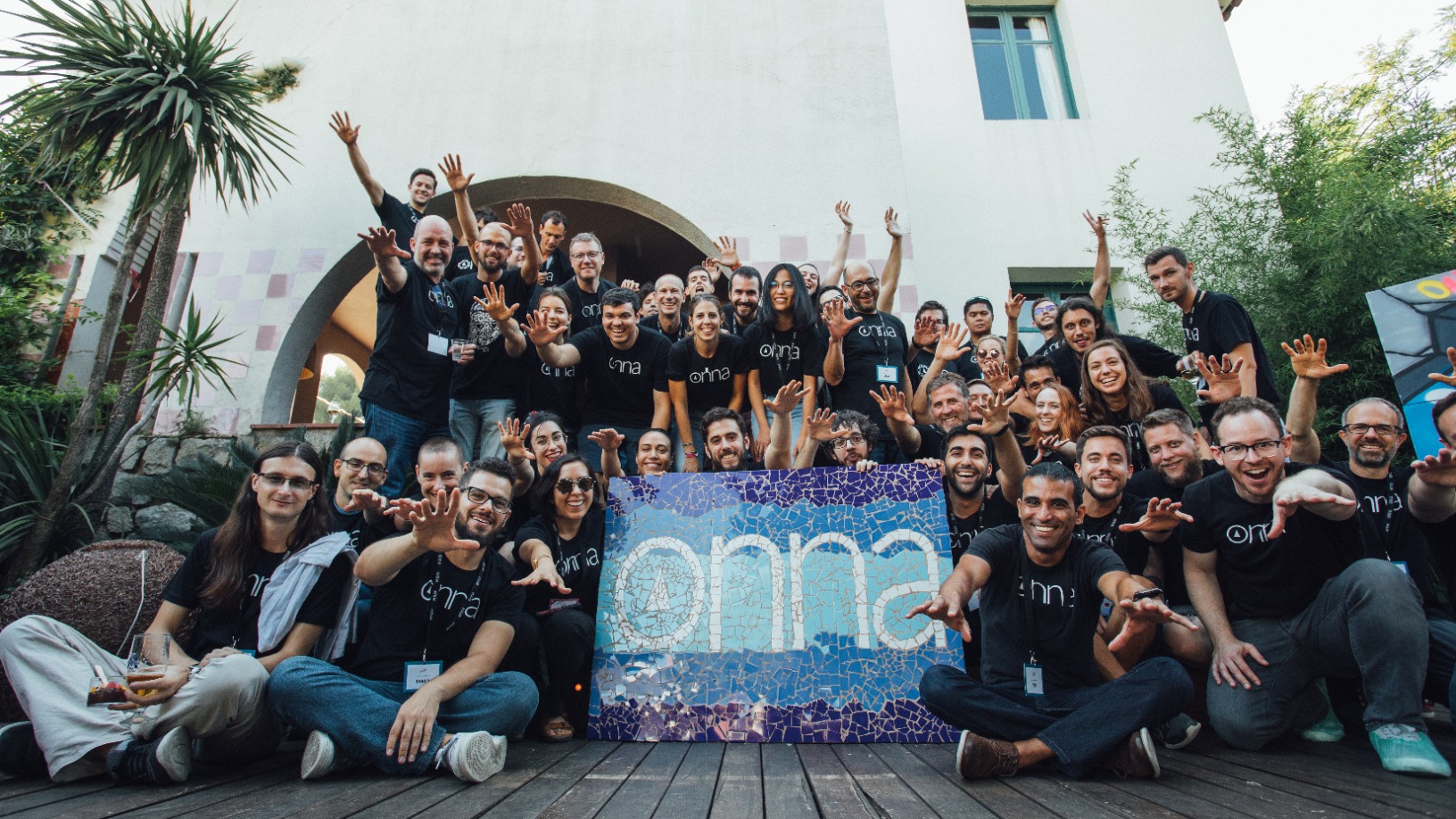Founded five years ago, data integration platform Onna has become an essential tool for global tech companies from Facebook to Fitbit, reflecting the exponential increase in the use of digital remote-working tools amid Covid-19 and greater demand for online security.
The improved prospects led Onna to raising a $27m Series B investment in June – the largest single funding round for a Spanish startup in 2020 then. The deal was led by European VC Atomico, which itself raised $820m in financing earlier this year, its biggest fund to date; and included participation from Slack Fund, the investment arm of collaborative work platform Slack.
Onna last year also raised $11m in a Series A round, in which clients Dropbox and Slack participated. Besides increasing hiring and further commercializing its product, Onna says it will use the funds to integrate more apps and digital platforms into its system.
The platform – which also counts News Corp and Lyft among its clients – is a centralized, searchable and secure system that connects company data wherever it resides, streamlining business processes that often require rapid access to multiple, unconnected data sources. The apps integrated in Onna cover all major apps that businesses use: Slack, Dropbox, G Suite, Twitter, Salesforce, Microsoft 365, Github, Amazon Web Services, O365 and Confluence.
“By 2025, Onna aims to be core to any individual or company’s knowledge infrastructure, enabling all knowledge to be accessible, useful, secure and built upon to create a whole new generation of efficient workflow applications,” Onna’s Chief Strategy Officer Kelly Griswold told CompassList in a Zoom interview.
Filling a white space
As businesses increasingly look to migrate data to the cloud, particularly with Covid-19 accelerating such growth, Gartner forecasts the global SaaS market to reach $140.63bn in 2022, from $102.06bn in 2019.
The average company uses 88 disparate apps to power daily workflows today, creating a technical challenge for those searching for related information from disparate sources within a company.
The problem inspired Moroccan-born entrepreneur Salim Elkhou to create Onna in 2015. As the founder of legal tech company eStet, which managed discovery processes for Fortune 500 companies and was acquired by EY in 2017, Elkhou had realized there was an opportunity for a platform that could collate data from several different platforms into a single set of information.
Knowledge fragmentation was a major challenge, leading to frustrations and costing time and money
“[Elkhou] found that finding public information was often a lot more straightforward than accessing knowledge that was within the companies he was working with,” Griswold said. “That was because it was distributed across so many digital platforms that didn't even talk to each other, creating silos.
“He realized that knowledge fragmentation was a major challenge that was leading to frustrations and ultimately costing companies time and money.”
Based in California at the time, Elkhou assembled a large team of tech engineers to develop Onna, opening offices in Los Angeles in 2015 and Barcelona in 2016. Most of the initial development, which took two years, occurred in Barcelona. Today, Onna has offices in Barcelona, New York, and Raleigh, North Carolina.
“In developing his company Salim didn't see himself limited to Silicon Valley or even the US, as knowledge fragmentation is a global problem,” Griswold said.
“You can build a great tech company anywhere. Barcelona is a great tech hub in Europe with great schools attracting top talent from all over the EU so when Salim decided to expand operations abroad, Barcelona was our top choice.”
Integrates data and metadata
While there are several similar platforms on the market, Griswold said Onna is unique in its field because it searches and integrates data and metadata, including edits and deleted information, from a vast range of social media and digital platforms to assist with common workplace functions like compliance, governance, e-discovery and archiving.
Onna collects unstructured data via the API of each data source and processes it in the hub for indexing using natural language processing and machine learning. It has been designed for ease-of-use with no technical background and little onboarding required.

“The main demand for Onna has been across various use cases like electronic discovery, compliance, and collecting information for litigation,” Griswold said. “We have focused on linking up apps that have been notoriously hard for traditional tools to integrate with. Collaboration apps and those that are dynamically used can be especially challenging from a litigation and discovery point of view.”
Onna has gained additional relevance at a time when more apps are gathering more personal information than ever before, and more stringent data privacy laws are being enacted in the EU (via the General Data Protection Regulation — GDPR) and in some US states like as California which has enacted the Consumer Privacy Act.
“There is a difficulty to govern the data in enterprise systems. Even where companies want to do the right thing, they are really challenged to do so because of the data fragmentation problem. Onna […] gives companies the ability to govern across all of these apps,” Griswold said.
Attracting big tech clients
Onna’s cloud-based SaaS offer quickly attracted the attention of Facebook, which became its first major customer in 2017. Despite the strong start, building Onna was a complex process and the company was careful to make sure it had perfected its product before beginning to scale up.
“We brought together several disruptive technologies to create innovative frameworks built on a containerized microservices architecture and shipped in a Kubernetes container. Our platform is deployable in our cloud or the customer’s private or on-prem cloud, making it highly scalable and secure," said Griswold.
She added that "the company spent the first few years with a few anchor clients, including Facebook. That really ensured that we got the product right and it really paid off with us gaining ever more traction. Only in the last couple of years have we dialed up our commercial and go-to-market efforts.”
Today Onna has more than 30 out-of-the-box integrations. "Most of our connected apps have APIs so the challenge was connecting to them in a way that would enable us to meet demanding use cases, like compliance or e-discovery," Griswold said.
“For example, with our integration partners like Slack or Dropbox, we provide feedback on our experience with their APIs, as well as recommendations to support the use cases we are addressing.”
Security and privacy have been the key focuses for Onna when developing its product, she noted. “This has enabled us to build such strong relationships with such strong brands, even at the relatively early stage we are at.”











